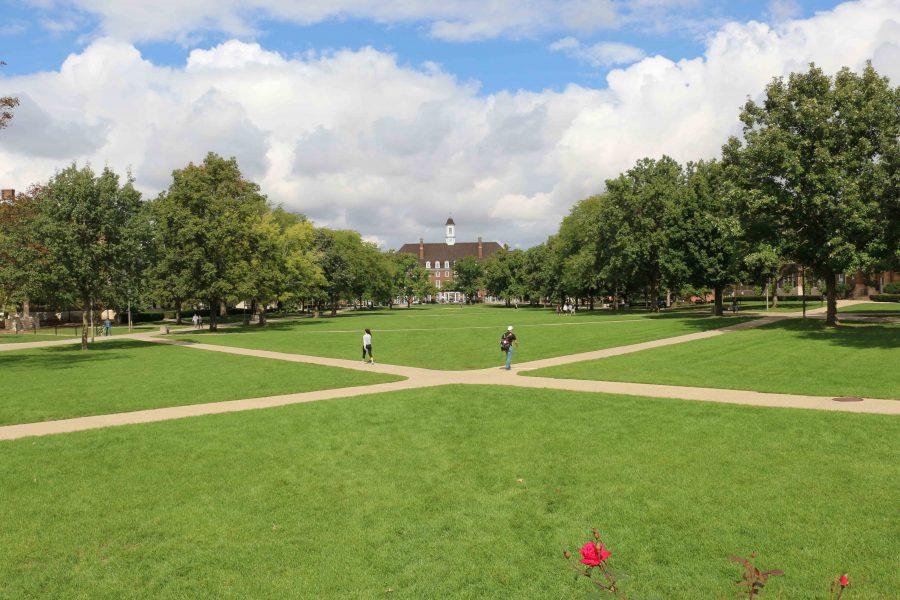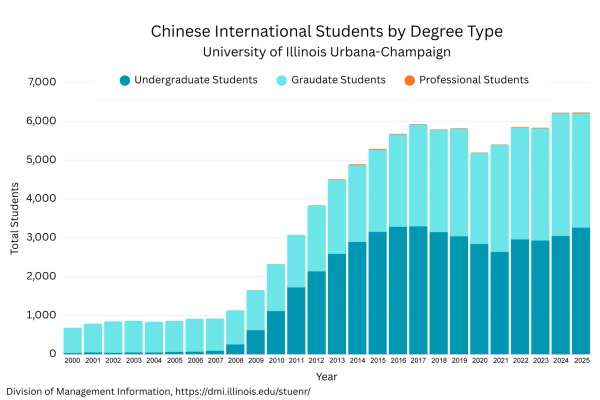Environmental Writing certificate to be offered in the fall
University astronomers have spent the last two year’s preparing for Monday’s total solar eclipse. While they will be traveling to southern Illinois to witness the most intense changes in the path of totality, 93 percent of the sun in Champaign-Urbana will be eclipsed.
Mar 29, 2017
Last updated on April 12, 2017 at 06:14 p.m.
University students will get the opportunity to combine a love for the environment and writing starting fall 2017.
A Certificate in Environmental Writing will be offered in collaboration with the Institute for Sustainability, Energy, and Environment (iSEE), the School of Earth, Society, and Environment (SESE) and the English department.
“There’s never been a collaboration of this kind at the University of Illinois before,” said Gillen Wood, English professor. “It’s a crossover of what I’ve seen in the humanities and the environmental sciences.”
The certificate’s program is designed for students to learn about environmental communication and how to effectively relay cutting-edge sustainability research to the public.
Get The Daily Illini in your inbox!
Students will embark on a three-step pathway to be awarded the certificate.
The initial course,“Environmental Writing,” will be available to students starting in the fall, along with the corresponding course “Advanced Environmental Writing.” In the spring, the capstone course “Environmental Writing for Publication” will be offered as the final step for students to get their certificate.
Wood said that an exciting aspect of the capstone course is that students will be linked with environmental researchers on campus, ranging in specialties from bio-energy, crop science, climate change and more.
“We’ll be linking students with research professors and allowing them to be involved and learn more about their research,” said Wood. “They’ll actually be able to get out in the field or into the lab and interview cutting edge researchers in the field located here on the U of I campus to help get their writing some real heft and substance.”
Students will be able to write about their hands-on experiences with skilled researchers and get them published online and in print in the magazine “Green Century,” which coincides with the certificate program.
The magazine will be focused on environmental writing, complete with figures, illustrations and graphs to help illustrate data. Students will be able to assist the production staff at the Institute for Sustainability to produce the magazine for online and print.
Logan Weeter, sophomore in LAS, said that he felt the resources offered to students in these new courses are important not only for the certificate, but writing in general.
“Outreach and being able to share your written ideas with others is one of the most important things in a major largely based on writing,” said Weeter. “That kind of stuff is crucial to being able to share your research and your findings and your learning with other people. And this is a really good way to go about that.”
The model of the certificate is focused on learning how to turn data into a narrative. Wood said that it is especially important for students in the course to develop a scientific literacy so they can share environmental issues with the broader public.
“Environmental and global warming issues are a big deal, and to have a course on that would be really great because a lot of students are concerned and might want to help and fight against forces working against it,” said Eder Rebollar, freshman in LAS. “I think the course would be great for students interested in that”
A problem facing environmental issues is the disconnect between scientific research and the general public’s knowledge and understanding about those issues. Wood said he hopes the skills students develop in the course will help bridge that divide.
“To breach that gap, we need very effective, skillful and well-informed environmental communicators,” said Wood. “And that’s a new generation of environmental writers that we’re hoping to help nurture through this program.”
Correction: From April 2 through April 12, this URL had the text from Inside the hive, our longform about beekeeping in Champaign county.






